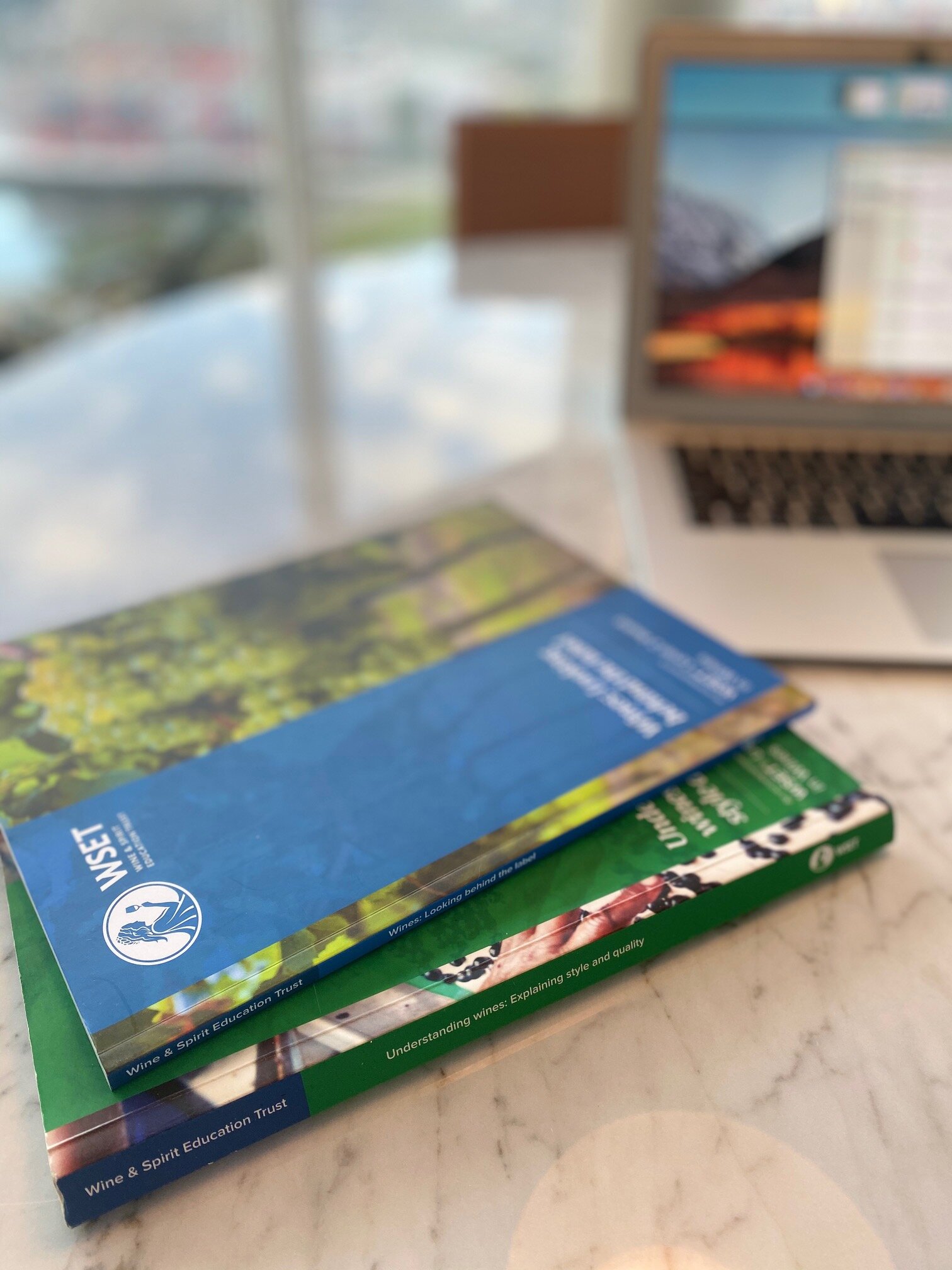5 REASONS YOU NEED A STUDY STRATEGY FOR WSET LEVEL 3
#1: It’s a big jump from WSET Level 2 to WSET Level 3
The WSET Level 2 textbook is a pleasant 76 pages long, and is an enjoyable read, with pictures occupying almost as much space as text.
The WSET Level 3 book jumps to a thicker 175 page format, which much denser text. Unlike Level 2, which is organized by grape, Level 3 is largely organized by region and introduces many new details of geography and viticulture/vinification to absorb.
The WSET Level 2 textbook vs the WSET Level 3 textbook
The Level 3 text is not a book you can skim in an afternoon, it takes at least a few dedicated days to read through.
#2: Depth of materials = Overwhelm leads to procrastination
The much larger syllabus of information in Level 3 can feel overwhelming if you don’t have a study plan, and take a haphazard approach to preparing. This feeling of overwhelm, that there’s too much to cover, can cause many of us to put off cracking open the books at all, and then we have to face the dreaded cram session :O
Better to make a plan where you do a little bit, often, than rush to pull an all nighter before your exam. Less stress, plus you’ll have more time to properly memorize everything you need to.
#3: There are three types of exam question to prepare for: Multiple Choice/Written Theory/ Tasting
In WSET Level 2, you need to pass a multiple choice (MC) exam. Level 3 ups the ante, and asks you to cover not just MC questions, but also short answer theory, and also a blind tasting.
Most students are comfortable with the MC questions. The tasting and short written answers are new, and can be a source of trepidation.
The feedback I’ve received matches up with my own experience writing the L3 exam, which is that the short answer theory is the real crucible of the test, where the majority of fails occur. Sitting in the exam room, you can feel the tense energy while the minutes count down and everyone is scribbling furiously.
#4: Time flies while you’re studying - the exam comes up more quickly than you’d expect!
It always feels like we have a lot of time till exam day, but then life gets in the way. We watch some netflix, go out with friends, or have family and work commitments, and the week flies by with ‘0’ study time achieved.
It gives us confidence, and just plain feels better when we’ve got a plan. We know how much time we need to spend, and have a strategy for getting our reading/notetaking/tasting done. After all, we choose to study wine for enjoyment and personal satisfaction, not to add stress to our lives.
#5 Passive studying alone won’t cut it
Practicing using quizzes and flashcards are really helpful for mastering the theory elements of Level 3, and active recall is key! Active recall requires you to pull information from your brain to construct a response, so it’s a great indicator of whether you need to do more review.
Being able to produce dry tasting notes for a variety of classic wines, answering open questions, and drafting mind maps for the various regions and grapes will help tell you if you’re really retaining the information. Make sure your study plan includes a variety of study methods!
Thanks for reading! Have a tip for WSET Level 3 studies? I’d love to hear it, say hi in the comments below.
To download a free study planner pdf and access our free Level 3 resources (such as quizzes and practice theory questions), visit the WSET Study Tools page.
For help with your studies, you can also check out the Level 3 Prep Course.
Cheers,
Rachel


